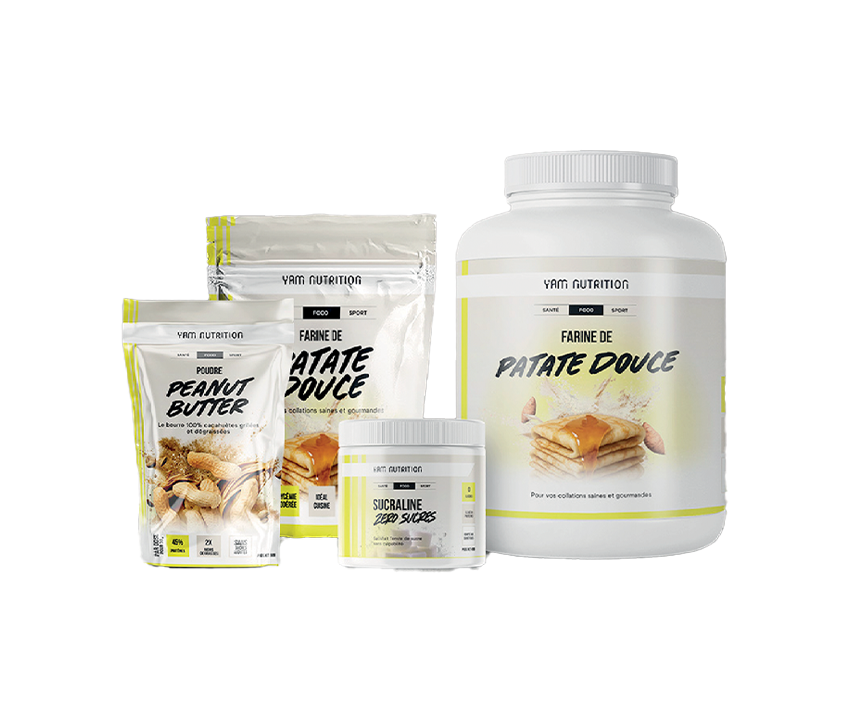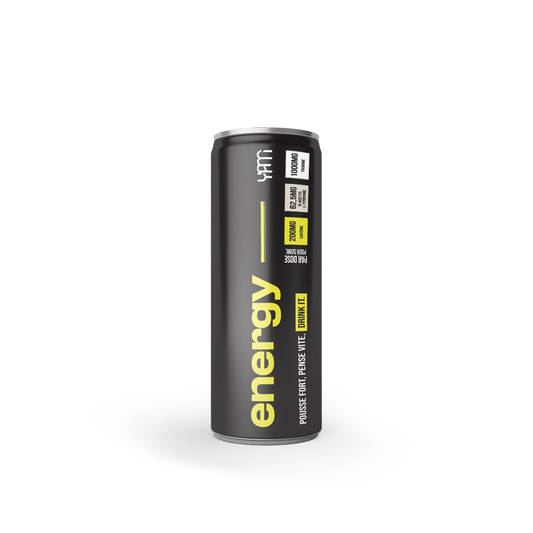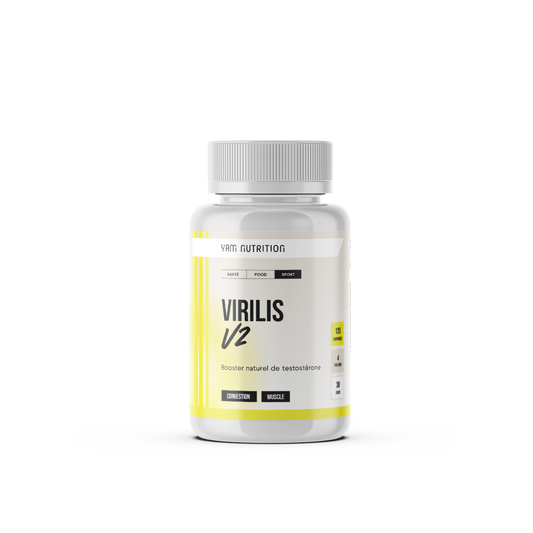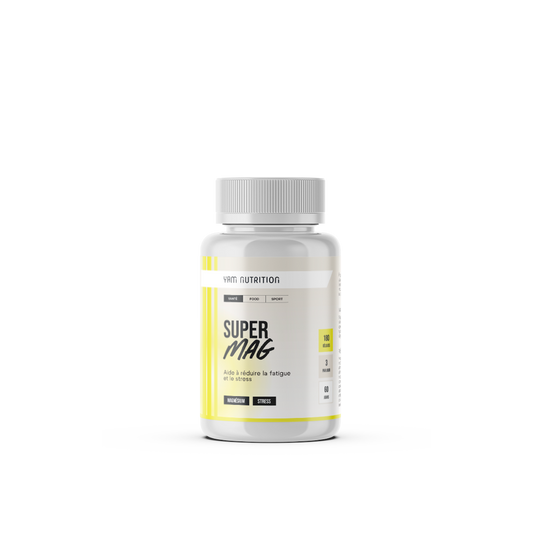How to increase your libido after 50
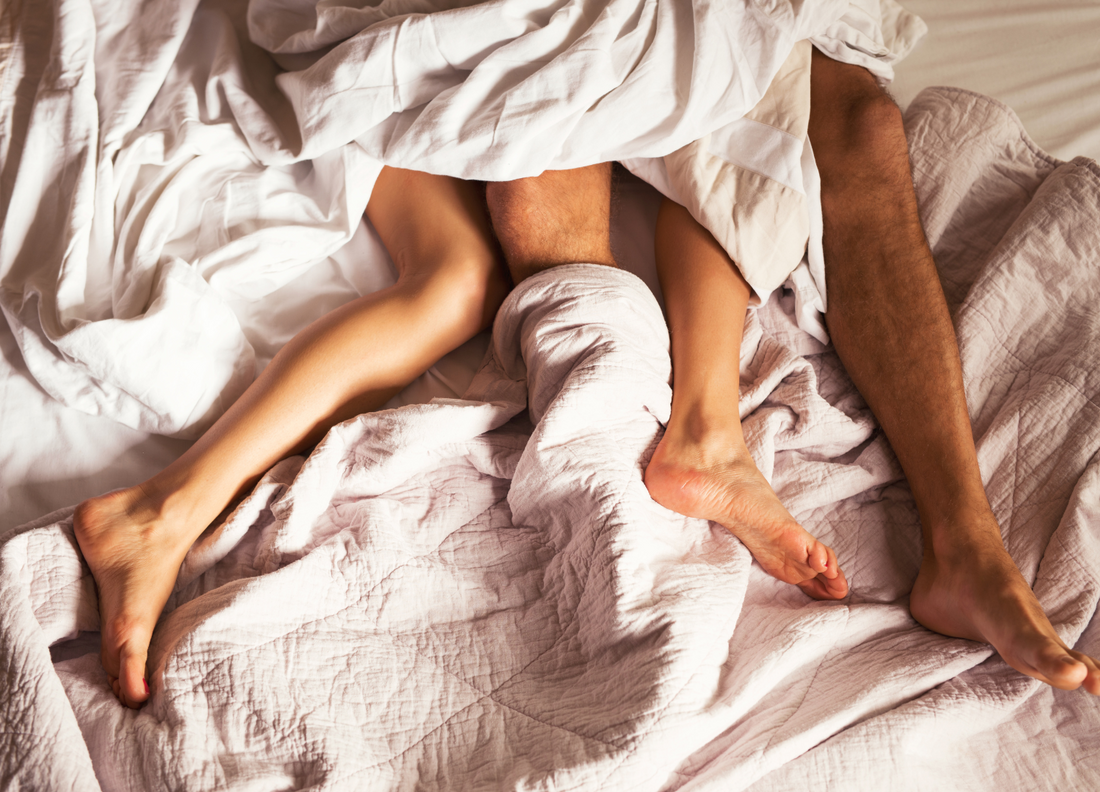
Sommaire
- The decline in testosterone from a certain age
- In humans…
- In women…
- Menopause and loss of libido in women, can they maintain desire?
- What is libido?
- Factors influencing libido
- Testosterone and libido
- How does testosterone influence libido?
- How does testosterone change with age?
- Do women and men experience low libido in the same way?
- How can I maintain a healthy sex life after 50?
- What natural techniques and methods can you adopt to increase your libido after 50?
- The importance of nutrition
- Physical activity and libido
- The role of sleep on libido
- How does stress affect libido?
- Stress Management Techniques to Improve Libido After 50
- The role of communication and the couple's relationship
- Dietary supplements to increase libido after 50
- How can Virilis V2 help increase libido in men over 50?
- How can Aphrodisia help increase libido in women over 50?
- Are dietary supplements effective in improving libido after 50?
- Precautions to take when using dietary supplements for libido
Medicine has shown for decades that libido tends to decline after the age of 50. In men, testosterone is linked to the expression of a healthy and fulfilled libido. In women, sexual desire is more associated with estrogens, including estradiol. In contrast, progesterone reduces female libido. sex hormones are largely associated with libido, while in women, the neurotransmitters dopamine and serotonin are also involved in desire for a partner as well as the pleasure felt during sexual activity. However, libido can vary and undergo a significant decline with age. After the age of 50, desire and libido can decrease significantly. In this article, we will try to understand why sexual desire can decrease with age, but more importantly, how to increase your libido after 50...
The energy drink 2.5x more caffeinated than average The natural testosterone booster The ultimate pre-workout booster for a killer boost
YAM Energy Drink
Sale price
From 3,00 €
Virilis V2
29,90 €
Sale price
29,90 €
Bombi Preworkout
Sale price
49,90 €
The decline in testosterone from a certain age
Testosterone is an essential hormone for the health of men of reproductive age. This hormone is also present in women, although in small amounts, just as estradiol is required in small amounts in men. However, the hormone levels of androgen hormones are not constant throughout life. In fact, testosterone tends to decline after the age of 50, sometimes much earlier, depending on a person's physical condition. After the age of 30 or 40, men sometimes experience a decline in this essential hormonal factor.
There drop in testosterone in men is often linked to the quality of their diet and lifestyle. If the natural aging of the body leads to a decrease in normal hormonal release, a food Too high in calories or sugars and lack of physical activity will lead to overweight or even obesity, which will then lead to a further drop in testosterone.
In humans…
The male hormone par excellence, testosterone will tend to decrease in men after 50 years of age. Several causes for this hormonal decline can be stated. The most obvious of these is directly related to the physical condition of individuals, which will tend to deteriorate all the more quickly when the sedentary lifestyle is strong. Concerning the testosterone and libido , there is a fairly stark contrast between men who exercise regularly and those who are sedentary after the age of 50. The most athletic men generally benefit from a level that is still high and not very variable, even after the age of 50, while those who are sedentary see their level of androgen hormones drop rapidly, sometimes even after the age of 35 or 40.
The consequences of a significant drop in testosterone are numerous, particularly in terms of sexual health, for example. This type of deficiency is quite noticeable when it comes to maintaining a continuous erection during sexual intercourse. Until recently, medical specialists spoke of andropause, in relation to menopause in women, but doctors are now referring to a loss of testosterone in men over 50.
In women…
Let us remember, however, that there are no objective criteria for measuring the Libido. Let's just say that, just like in men, sexual desire and urge can vary depending on the individual and age. Statistically, half of women experience or will experience a decrease in libido during their lifetime. As in men, women can suffer from a temporary decrease in libido when stress or fatigue disrupts their daily lives. A certain form of anxiety or temporary depressive state has a fairly negative influence on the libido of women over 50. But with age, sexual desire and urge can also change for other reasons. The first of these concerns menopause, a typically female disorder that has little meaning in men.
Menopause and loss of libido in women, can they maintain desire?
While a large majority of women experience menopause quite well, they do notice a significant decrease in desire for their romantic partner. This delicate period in a woman's life occurs around the age of fifty, even though the first hormonal and physiological changes can appear after the age of 40. This is a period known as premenopause. During this phase of hormonal changes, periods become irregular, before disappearing after the age of 55 in a majority of women. Menopause will cause a significant drop in estrogen. However, testosterone, which is a minority in women, does not decrease during menopause, helping to maintain desire in them, even after menopause.
What is libido?
Libido refers to a vital and sexual energy that is expressed in both men and women. Sigmund Freud, a neurologist, referred to libido in terms of impulses released by the nervous system. In adults, issues of sexuality and libido are part of everyday life. Libido requires full and unconstrained expression throughout an individual's life. A complex subject, the question of libido depends on many factors, such as physical condition, psychological aspect, and many other factors. Attraction to a potential sexual partner depends on complex factors, both conscious and unconscious. In men, testosterone levels varies very little during the month, whereas in women, the level of sexual hormones will tend to vary widely, depending on the period of ovulation or its absence.
Factors influencing libido
Just as the causes of a decrease in libido are numerous, the factors that positively influence it are just as diverse and numerous. First of all, diet has an essential role to play in this regard. For example, the sufficient presence of minerals and trace elements will contribute to an optimal release of testosterone and androgen hormones. Several scientific studies support this. Zinc is known for its positive role in hormonal release, particularly for its antioxidant effects. In this regard, magnesium balances antioxidant reactions in the testicles; allowing for unhindered synthesis of testosterone once the free radicals have been neutralized. Magnesium acts positively on the enzymes essential for hormonal metabolism. In addition, the magnesium reduces the binding of testosterone to SHBG and albumin, proteins that neutralize its action at the cellular level (1). Thus, an optimal level of magnesium will promote a higher level of free and active testosterone.
Testosterone and libido
Testosterone is considered the male hormone par excellence, just as estrogen is characteristic of the female hormonal system. Thus, it is important to know that testosterone is largely responsible for libido in men, but also, even if it is largely in the minority in women, it also contributes to their desire on a physiological, psychological and emotional level.
How does testosterone influence libido?
Testosterone and libido are often associated because this hormone has a major influence on sexual desire. Similarly, sufficient levels of the male hormone are necessary to maintain erection strength during sexual intercourse. Similarly, high testosterone levels will lead to more frequent and intense sexual intercourse. At the same time, testosterone is necessary for normal sperm synthesis in men. Conversely, a deficiency will lead to a decrease in libido and desire, with increased fatigue.
How does testosterone change with age?
Generally speaking, testosterone levels will gradually decline over the years in men. This hormonal drop can occur at any age, a medical condition called hypogonadism. However, testosterone actually begins to decline in men after the age of 30, but not significantly at this age. Statistically, this decline in hormones averages about 1% per year. Compared to menopause, this hormonal decline is much more gradual. It is also rare for this hormonal decline to really change the daily life of most men. Similarly, in men over 50 who are in excellent physical condition, the drop in testosterone will be relatively slight. It all depends on whether you have been pursuing a healthy lifestyle, with regular exercise or not. A minority of men will, however, suffer from it...
Why does testosterone decrease after age 50?
The main cause of low testosterone in men is related to aging of the body . This will include a decrease in antioxidant protection protecting the organs synthesizing this hormone, among other causes. However, this hormonal decline is very variable depending on the physical condition of individuals. The drop in hormones will generally be much more pronounced in sedentary people than it will be in sportsmen or high-level athletes. Overall, the hormonal decline would be 10 to 20% in men after 50 years of age. After the age of 70, the testosterone level could even suffer a loss of 70% compared to the maximum level observed in the individual's youth. However, let's add a caveat because there is practically no systematic decline for this hormone when the conditions for healthy aging are optimal.
Are andropause and menopause physiological conditions common to the entire population?
Andropause is caused by a severe deficiency in testosterone synthesis. Thus, men who suffer from it may present several symptoms including sarcopenia, a syndrome characterized by a decrease in muscle mass and of the physical strength . The decrease in libido will generally be accompanied by erectile dysfunction, a tendency towards depression, constant fatigue and weight gain, as well as an increased risk of osteoporosis. While the symptoms and occurrence of andropause are generally more subtle in men, those of menopause are generally more marked and radical in women.
Do women and men experience low libido in the same way?
Clearly, men and women experience a decline in their libido differently. As mentioned above, the onset of menopause in women is much more rapid than that of andropause in men. Despite this, is it possible for both men and women to consider continuing a healthy sex life after the age of fifty?
How can I maintain a healthy sex life after 50?
Without even mentioning the increase in longevity, it is quite natural to think that men and women in their fifties want to enjoy a healthy and fulfilling sex life. Let's say first that the physical condition The 50-year-old lifestyle is no longer what it was at 20, but that won't stop you from having frequent sex with your partner. While a minority of women experience the onset of menopause quite badly, only a third of them suffer from a drop in their libido. While the hormonal decline in testosterone in men and estradiol in women contributes to a reduction in sexual desire, libido does not depend solely on hormonal factors. It may therefore be expressed later in a couple's life. However, physiological changes linked to aging of the body, or even psychological changes, may reduce the desire and frequency of sexual intercourse within the couple. So, are there natural solutions to maintain libido and harmony in the couple after 50?
What natural techniques and methods can you adopt to increase your libido after 50?
First of all, it's about realizing that a decrease in desire does indeed exist within your relationship. If this is indeed the case, start by talking about it openly, without taboo. Over time, it is considered quite normal for libido to be less strong in general. This reality will change the way you approach your couple's sexuality, both physically and psychologically. Aside from communication, which is an essential value in a relationship, especially when libido is likely to change, diet can also be important, as we will see below. On a psychological and emotional level, foreplay and displays of affection will be as important as the sexual act itself. Emotion, a sensual message, but also essential oils and an atmosphere conducive to relaxation will naturally promote desire.
The importance of nutrition
A poor quality diet, too low in protein or quality fatty acids will also lead to a drop in testosterone. A diet that is habitually too high in calories and sugars is one of the most common causes of low testosterone in men. Metabolic syndrome diseases such as diabetes, overweight or cardiovascular disease are the worst enemies of testosterone. The more overweight you are, the more dominant the conversion of testosterone to estrogen will be. There is no obligation to maintain an athletic physique, but a balanced and sensible diet, in accordance with your nutritional needs, will help you maintain a strong and fulfilling libido... Incorporate these foods into your diet to help increase your testosterone .
Physical activity and libido
For both men and women, libido is indirectly linked to physical condition. Naturally, diabetes, overweight, obesity, and cardiovascular disease do not promote sexual desire, quite the contrary. Therefore, physical activity will be your libido's best ally. Practicing a sport, even if only twice a week but regularly, could bring you many benefits, particularly on a sexual level. Even at moderate intensity, sustained exercise will promote a healthy and fulfilled libido. Sport allows you to burn more calories and therefore reduce the risk of being overweight. However, sport practice must be regular and associated with a balanced diet in order to be effective.
The role of sleep on libido
Sleep quality is a recognized health factor for everyone. Lack of sleep will negatively affect libido, just as much as other health criteria. While adults need an average of 8 hours of sleep per night, a lack of rest will lead to an increase in cortisol, associated with a decrease in sexual desire. In men, testosterone synthesis is higher in the morning, but when you lack hours of rest, hormone release will be much lower. In women, lack of sleep has the same influence on the decrease in estrogen and the desire for intimate relationships. Just one hour less of sleep can lead to a significant decrease in libido.
How does stress affect libido?
Stress is one of the most definite libido reducers, since sexual desire and arousal require some form of relaxation of the body and mind. Similarly, pleasure hormones like oxytocin and dopamine are hampered by the presence of stress. Naturally, stressful situations, the frustrated expression of a stressed person, discomfort, or a certain aggressiveness go against the normal conditions of relaxation necessary for fulfilling sexual relations. Calm and serenity are therefore essential to desire, as seems quite obvious to everyone...
Stress Management Techniques to Improve Libido after 50 years
Reducing stress is essential when it comes to regaining a more active libido after 50. In this case, what stress management technique is most appropriate? While there is no miracle method, the first step is to become aware of the reasons that lead to the existence and persistence of stress. Family, work, childrearing, and many other everyday issues can be the cause of stress that accumulates and becomes harmful to health, including when it comes to intimate relationships. However, it is always possible to manage stress and reduce it and its consequences.
While there are many ways to manage stress, start by simply thinking about yourself. This means that sometimes you'll need to take time to do nothing and take a step back from your personal situation. If unfinished projects are piling up, take a break to stop thinking about them, even if it seems impossible. This way, you'll be much more efficient when you return to work. Realize that everything ends up finding a solution and that you can't split yourself up. If it's your children, take a little more time to take care of them. You'll quickly find that they'll be much better at focusing on themselves if you give them time while knowing how to set limits when necessary. This way, you'll see that there's always a solution to combat stress, no matter the situation.
The role of communication and the couple's relationship
Start by talking to your partner when sexual desire and urges are no longer part of your daily life. Avoid focusing excessively on intimate relationships by taking a step back from the life you lead. Try to change your habits, go out a little more often or visit places you don't usually go to (cafes, tea rooms, organized parties, meetings with friends, etc.) to take your mind off things and get out of the routine.
Dietary supplements to increase libido after 50
Naturally, you may be tempted to take a dietary supplement to improve your libido if you're over 50. To this end, the market is full of formulas of varying effectiveness. Let's say there are two main categories of dietary supplements to stimulate desire. The first of these will stimulate hormone synthesis by providing your body with the nutrients it needs. This category also meets the most fundamental principle of dietary supplements: that of supplementing your diet so that your body can function at its best. It is with this in mind that YAM Nutrition formulated Virilis V2.
The second category of libido supplements is based on formulas that work with your metabolism to boost it slightly before intimacy. Some well-known medications are based on this principle, but they don't contain natural ingredients. They could prove counterproductive over time, or even potentially harmful. At Yam Nutrition, we developed Alpha X for men and Aphrodisia for women. Both are based on completely natural formulations with targeted plant extracts, amino acids, vitamins, and minerals.
How can Virilis V2 help increase libido in men over 50?
Virilis V2 has been developed on scientific bases to guarantee you maximum effectiveness. Indeed, our food supplement provides different nutrients and associated plant extracts such as Saw Palmetto ( Serenoa repens ), Ashwagandha, nettle and grape seed extracts whose positive influence on testosterone metabolism is recognized by numerous scientific studies. This is also why Virilis V2 provides you with vitamin D and Magnesium. By allowing your body to synthesize its testosterone under optimal conditions, libido will be naturally boosted, even after 50 years of age.
How can Aphrodisia help increase libido in women over 50?
Aphrodisia is based on the same principles of essential nutrient supplementation to promote healthy hormonal release in women. We have selected several plant extracts such as Damiana, Gingko biloba and Ginseng to create a synergy of effects. Key vitamins such as vitamin B6 as well as vitamin B9, highly assimilated folates (5-MTHF) and vitamin B12 (methylcobalamin) are part of the formulation. Thus, Aphrodisia provides essential nutrients for the natural stimulation of libido in women, even after 50 years.
Are dietary supplements effective in improving libido? after 50 years
Yes, dietary supplements are effective when it comes to improving libido in both men and women. Nothing here is invented or cloaked in crude marketing.
Recent scientific research has shown that certain plants have positive effects on libido and sexual desire. It is precisely based on this reliable data that we developed the formulas for our dietary supplements. These formulations provide nutrients involved in metabolism, energy, and the development of a naturally high libido in men and women, even if you are over 50.
Precautions to take when using dietary supplements for libido
As with any dietary supplement, libido-boosting formulas like Virilis V2, Aphrodisia, or Alpha X should not be overdosed. An overdose will not provide additional benefits, but it could pose a health risk. Take Virilis V2 with meals; Aphrodisia and Alpha X can be taken one hour before intercourse.
1 – Mr. Maggio, The Interplay between Magnesium and Testosterone in Modulating Physical Function in Men , Int J. Endocrinol. 2014; 2014: 525249.
Eric MALLET
Spécialiste en Nutrition Sportive
